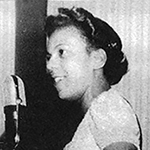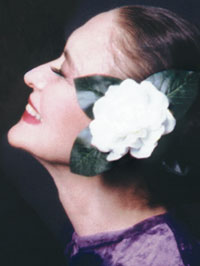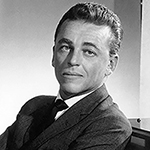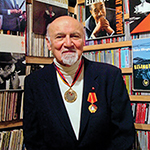March/April 2019
Duke Ellington
by Marilyn Lester
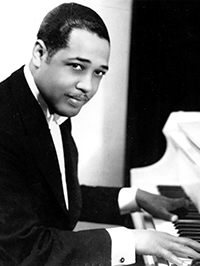
Edward Kennedy “Duke” Ellington (April 29, 1899–May 24, 1974) arguably ranks as one of America’s most important composers and songwriters of all time. He was tall, charismatic, eloquent, and erudite.
His catalog of about 3,000 works includes compositions for the concert hall, ballet, film, stage, and beyond, in a range of styles and genres. His innumerable contributions to the American Songbook (with a variety of lyricists) encompass iconic works such as “Sophisticated Lady,” “Satin Doll,” and “Prelude to a Kiss.”
Ellington was born in Washington, D.C. He received piano lessons at age seven, quitting them to pursue his first love, baseball. He took up the study again as an adolescent, realizing that piano players get the girls. Always precocious, he wrote his first work, “Soda Fountain Rag,” in 1914. He studied commercial art in high school, turned down a scholarship to New York’s Pratt Institute, and made his living at “the day job” of creating posters and signs as he was starting his career in music. Ellington formed his first band, The Duke’s Serenaders, in 1918, relocating to New York City in 1923.
In the ensuing years, he built a reputation and gained fame rapidly, recording and playing the major clubs of the day.
From December 4, 1929 to February 3, 1931, he and his men worked as the house band for the Cotton Club; during this time his fame soared. In 1931, a remarkable run for the Duke Ellington Orchestra began—an unbroken and successful touring schedule ending only with Ellington’s death.*
Duke Ellington’s far-reaching genius was especially evident in his arranging and inventive use of the orchestra. The band was his ultimate instrument, with nightly composing sessions tested out the next day. In 1939, he met fellow musical genius Billy Strayhorn, forming an astounding and productive collaboration ending with Strayhorn’s death in 1967. On his centenary in 1999, Duke Ellington was awarded a posthumous Pulitzer Prize Special Award for music.
*The Duke Ellington Orchestra continued to tour under son Mercer Ellington’s baton until his death in 1996. The orchestra still exists and tours as a “ghost band.”


